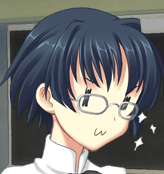Re: What would happen if another company wanted to buy KS ri
Posted: Mon Mar 19, 2012 11:28 pm
My my my! Alright, nice case cite. This is where I am punished for not taking IP yet, and specializing in Environmental law instead.zanger wrote:It is. Take, for example, Japanese manga. You could say it's expected that a commercially successful manga will transition into a TV anime series. If someone did that without authorization, it would be difficult for the copyright owner to claim he is suffering irreparable harm for which there is no adequate monetary relief. If the industry has already established royalty structures for manga-> anime transformations then it is clear what the monetary relief is, and it is hard to prove irreparable harm, if not impossible. (You could say they won't respect the artistic spirit of the original work, thus degrading the original work's artistic value; harming the author's reputation, etc., but that's clearly speculative, and a judge is hardly qualified to make that determination in the first place.)Renkinjutsushi wrote:I read Ebay v. MercExchange on Westlaw; I don't think the 4-factor test they propose is such a huge burden, but yes it's not a "gimme" by any means. Also note that it applies to Permanent and not Preliminary Injunctions. Such issues as insufficiency of damages can't be assessed until a record is developed. The most recent SCOTUS case defining the test for issuance of Preliminary injunctions is Winter v. Natural Resources Defense Council. Ah yes, quibbling as only lawyers can.
And yes, you are right. Trying to get jurisdiction over a Japanese Anime company in US Federal Court is utter madness. Typically they don't have nearly enough assets to make the process worthwhile. Much easier to file in a Japanese court.
Compare now to a product you release for free and refuse to turn for profit.
pre-eBay it used to be that all a plaintiff had to do was make out a case of infringement in order to be granted a preliminary injunction. Now courts take a closer look. eBay only applies to permanent injunctions?You might want to tell that to the Circuit Courts of Appeals. For example, see Salinger v. Colting, 607 F.3d 68 (2nd Circuit joins the 1st, 4th, 9th, and 11th circuits in applying eBay to preliminary injunctions in copyright law).
Also, Winter v. NDRC doesn't apply to IP cases and you probably shouldn't use that to talk about injunctions in IP cases, it's kind of bizarre. Monetary relief and environmental protection lawsuits aren't to be mentioned in the same paragraph. The tests used are totally dissimilar.
^ My face when you mentioned it
Actually, the case raises a good point. But it's not exactly the same point that you raised, instead it's about the availability of the Fair Use defense in copyright cases. This is a clear distinction and I agree it does provide additional tools to defendants seeking to fight Preliminary Injunctions against copyright violations. Whether or not Fair Use defense would prevail here, I have no idea. Feel free to research and enlighten me if you wish.
It doesn't matter that Winter v. NDRC is factually distinguishable, because what the Supreme Court restated were the baseline considerations to be used by all Courts when determining whether a Preliminary Injunction should be granted. Note that the Court in Salinger said: "In this preliminary injunction case, the District Court erred by not applying the equitable standard outlined by the Supreme Court in eBay, Inc. v. MercExchange, L.L. C. and Winter v. Natural Resources Defense Council." Salinger v. Colting, 607 F.3d 68, 84 (2d Cir. 2010). Both cases are given equal weight as binding precedents. Interestingly, the 2nd Circuit doesn't view them as being inconsistent at all. I'm not sure I can agree, but that's what the Court says.
Overall, what can I say? You make some good points. The case would be a fun one to litigate, even though IP isn't really my cup of tea.
